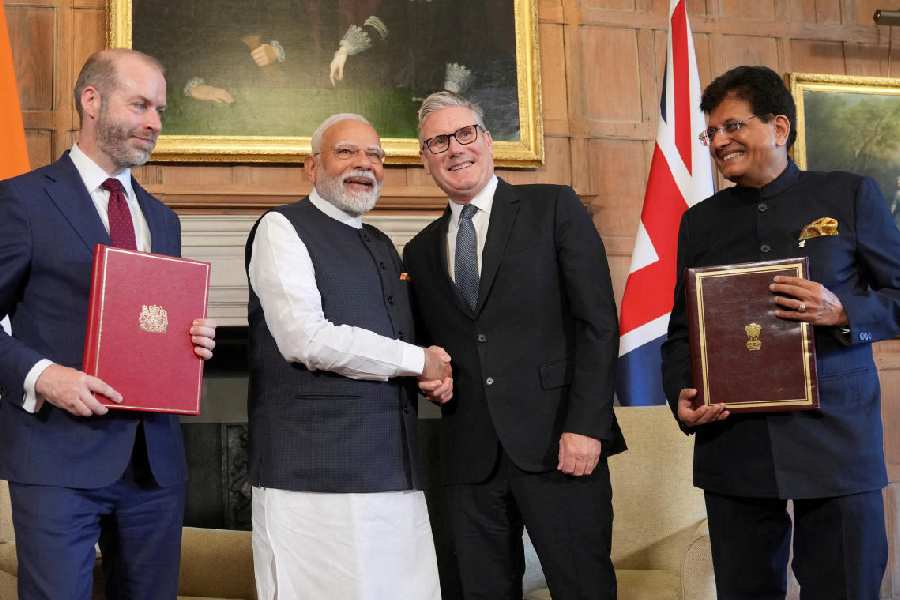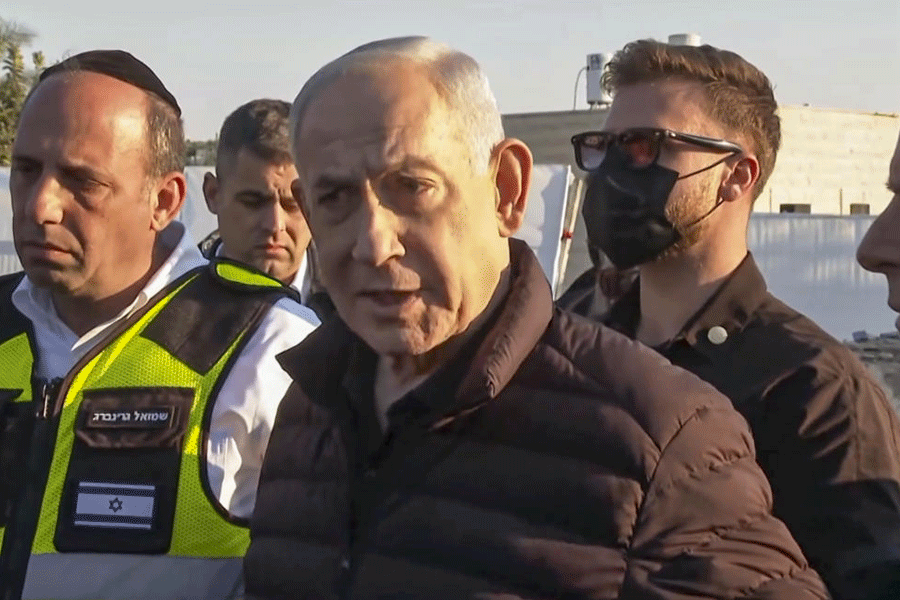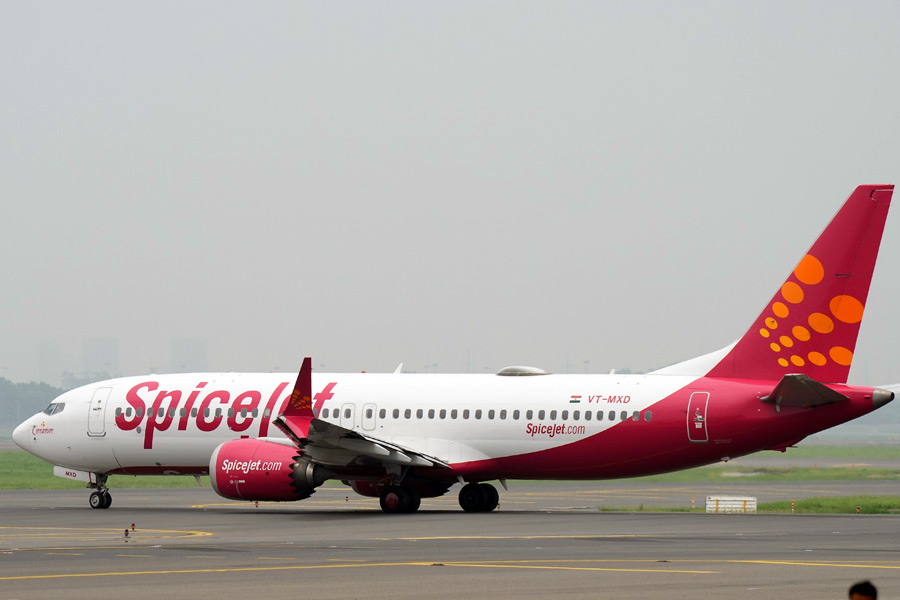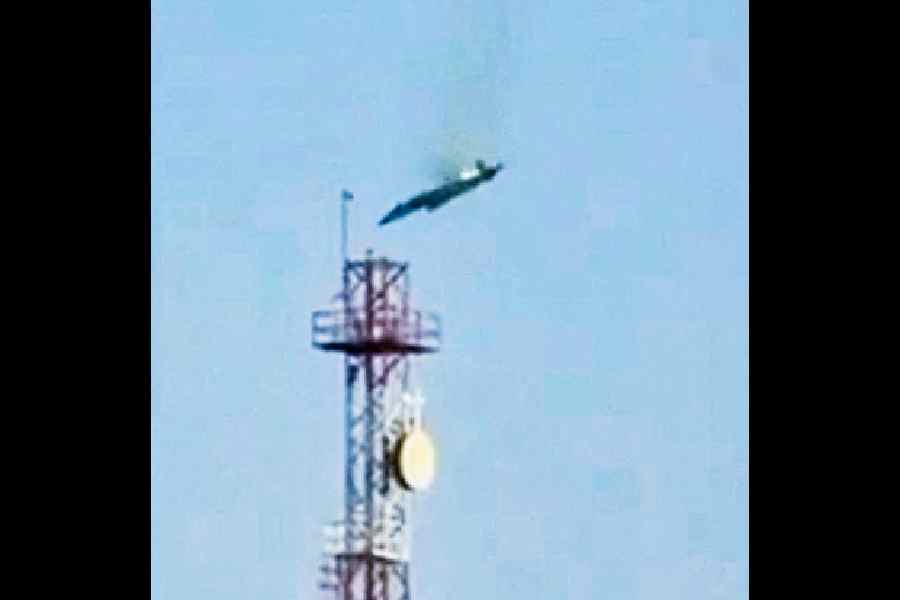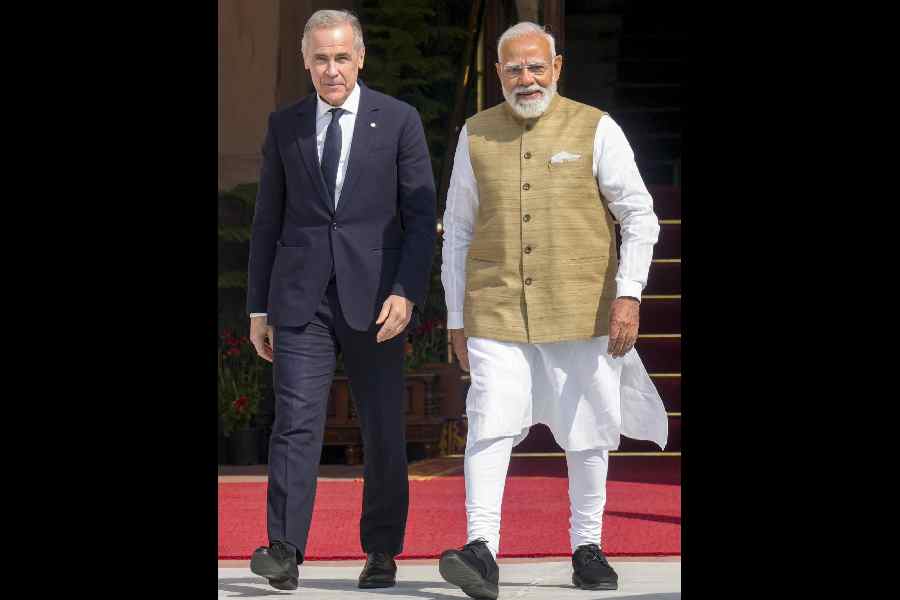India and the UK signed a free trade agreement on Thursday seeking to cut duties on goods either side of the border and create greater access for their businesses to each other’s markets.
The FTA, officially called the Comprehensive Economic and Trade Agreement (CETA), was clinched after both countries fast-tracked their talks in the shadow of the tariff turmoil unleashed by US President Donald Trump.
The agreement was signed by Prime Minister Narendra Modi and his British counterpart, Keir Starmer, at Chequers Estate, the country house of the UK Prime Minister, in the presence of Union commerce minister Piyush Goyal and UK trade and business secretary Jonathan Reynolds.
While the deal cuts duties on Indian agricultural products (excluding rice), textiles, footwear, gems and jewellery, seafood and engineering goods, the UK will benefit from a lower tariff on exports of its Scotch whisky and a proportion of its cars.
Shortly after the formal signing of the CETA, agreed by the two countries on May 6 after three years of talks, Modi and Starmer held a joint media briefing.
They explained how the deal, expected to boost bilateral trade by $34 billion a year by 2040, translated into gains for the world’s fifth and sixth-largest economies.
“Our landmark trade deal with India is a major win for Britain. It will create thousands of British jobs across the UK, unlock new opportunities for businesses and drive growth in every corner of the country, delivering on our plan for change,” Starmer said, addressing his domestic constituency.
Modi said the CETA, India’s 15th FTA and the fifth since 2014, would be especially beneficial for India’s youth, farmers, fishermen and the micro, small and medium enterprises.
“It paves the way for enhanced market access in the UK for Indian textiles, footwear, gems and jewellery, seafood, and engineering goods. It will also unlock new opportunities for India’s agricultural produce and processed food industry,” Modi said.
Using a cricket analogy amid the ongoing India-England Test series, Modi hoped the two countries would build a “high-scoring partnership”.
Alluding to the tricky nature of trade relations, he said: “There may be a swing and a miss at times; but we always play with a straight bat.”
The CETA will be effective on the ground a year from now. While the Indian cabinet has agreed to the deal, it needs the stamp of approval from the British parliament.
What India gets
In 2023-24, India’s trade with the UK stood at $53.3 billion, with India enjoying a $10.5-billion surplus. India exported $13.5 billion in goods and $18.4 billion in services, while its imports from the UK were $8.8 billion in goods and $12.6 billion in services. In 2024-25, India’s goods exports to the UK rose to $14.5 billion.
The UK is India’s second-largest IT and business services market after the US. India said the CETA, which is expected to double bilateral trade to $112 billion by 2030, will unlock $23 billion worth of export opportunities for labour-intensive sectors, among others.
With the new deal, $6.5 billion — or 45 per cent — of Indian exports like textiles, footwear, carpets, automobiles, seafood and fresh fruits such as grapes and mangoes will now enter the UK duty-free, down from earlier tariffs of 4 per cent to 16 per cent, Ajay Srivastava of the Global Trade Research Initiative said.
The remaining $8 billion — covering petroleum, pharmaceuticals, diamonds and aircraft components — already had zero-duty access even without the FTA, he added.
The FTA may provide opportunities to Indian businesses to use Britain as the beachhead to enter the European Union and American markets.
The Double Contribution Convention, signed alongside the CETA, will give a three-year exemption from social security contributions, minister Goyal said on X, calling it a “significant breakthrough for Indian workers and their employers”.
It is estimated to benefit over 75,000 Indian workers.
UK’s access goes up
India’s average tariff on UK products will drop from 15 per cent to 3 per cent, making it easier for British companies to sell products to India, from soft drinks and cosmetics to cars and medical devices.
Whisky producers will benefit from the halving of tariffs from 150 per cent to 75 per cent, which will drop further to 40 per cent over the next 10 years.
Tariffs on aerospace will be cut from 11 per cent to 0, and those on automotives from up to 110 per cent to 10 per cent – for a proportion of exports.
India has, however, withheld tariff concessions on several high-sensitivity agricultural products such as fresh apples, walnuts and blue-veined cheese, apart from gold bars and smartphones, among others.
British firms will be able to access Indian government contracts for projects in sectors such as clean energy. The deal also covers services sectors such as insurance.
Secretary Reynolds said UK companies would gain £6 billion in new investment and exports as part of the treaty.

